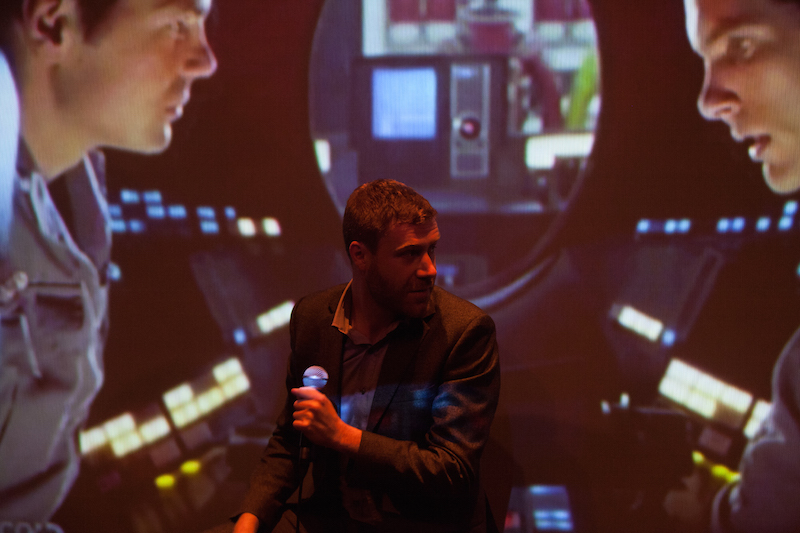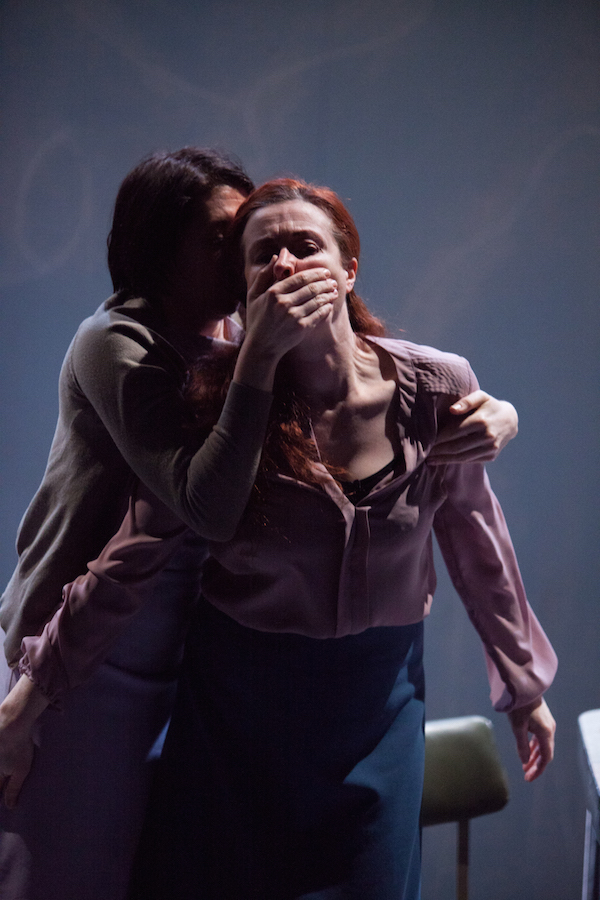How do we respond to a tragedy of infinite mystery? We investigate, we speculate, and we seek to impose meaning, to produce a story that safely contains unfathomable horror. However, those hoping for such reassurance via a traditional theatrical narrative in Bush Moukarzel and Dead Centre’s Lippy will come away disappointed. This darkly absurdist piece floats searching, fundamental questions, but answers came there none.
Fifteen years ago, in the small Irish town of Leixlip, police discovered the bodies of 83-three-old Frances Mulrooney (Joanna Banks) and her three nieces, Catherine (Eileen Walsh), Bridg-Ruth (Caitríona Ní Mhurchú) and Josephine (Liv O’Donoghue). The women had barricaded their home and starved themselves to death over some 40 days, leaving no explanation for their actions. So determined were they to destroy all trace of self that they methodically shredded, by hand, all personal documents and stuffed them into bin bags.

But Lippy's core concern is the ethical consideration of usurping someone else’s voice. Its creators refuse to enact that violation by placing words in the mouths of the real-life suicidal family or taking ownership of their story, although there is an irreconcilable tension between the stated desire to listen to “the true words of the powerless” and respect their chosen silence. Of course, by placing them before an audience, Moukarzel and co-director Ben Kidd have already discounted their final wish to be erased, and there are fragments of interpretation in the surreal fever dream of a second half, with overt religious tropes dominating.

Lippy’s Beckettian ambitions are laid bare in the opaque, Not I-referencing climactic filmed monologue, searingly delivered by Walsh (pictured above left with Caitríona Ní Mhurchú). It’s a memorable capper to this visceral experiment, whose unrelenting bleakness and tricksy, self-conscious meta-theatricality infuriate as well as fascinate. A distinctive, but unarguably onerous, journey into the unknown and unknowable.














Add comment